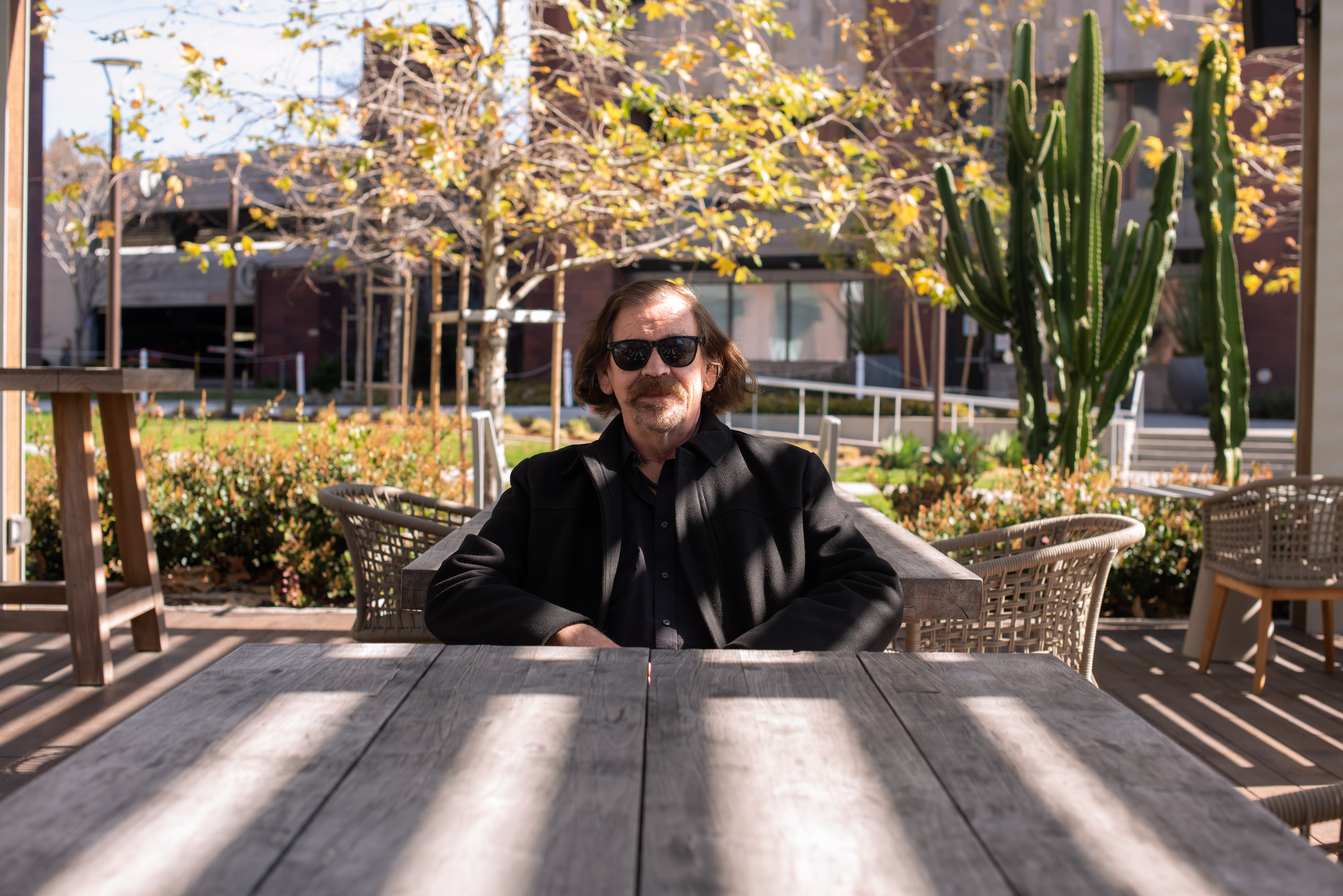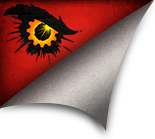
How did you come to work on EverQuest?
Like many people on both sides of the monitor, I came to EverQuest because of friendship. Back when EverQuest was little more than a fantastical notion, one of my best buds worked on its formation and early production. He and I spent several years before that making arcade games together. So, when he called one day, all excited about this new, unnamed project, I was genuinely curious and suggested lunch for a little non-NDA'd peek. Conceptually, EverQuest was unlike anything I'd ever seen in a game, and quite frankly, given the immense scope, I wasn't entirely sure they'd ever get it out the door. That would have been late '97 or early '98—something like that. And while my best bud talked me into doing a little freelance work at the time, it was another three or four years before I had the good fortune to work on it in a desk chair on Terman Court every day. Again, primarily due to my friend.
How long have you been working on EQ?
I've been working on the EverQuest franchise for about 19 years in aggregate as of this writing. It's hard to imagine, looking back on all the time that's passed. All the faces of teammates with whom I've had the pleasure and honor of working. Equally incomprehensible is the sum of the blood, sweat, tears, and passion poured into the game daily by so many caring people. The number of lives EverQuest has touched on both sides of the monitor over the years is genuinely mind-boggling. EverQuest is truly a living, breathing entity.
What was the first design you worked on for EQ?
The very first thing I contributed to EverQuest was its logo. I see it a thousand times a day and have for a couple of decades. And every time I see the logo, I am reminded of the rainy week during which it was created (a rarity here in Sunny Southern California), along with the guiding direction. The overarching idea was to give the logo an "epic" quality without it being "cliché". I'm not sure it succeeded in accomplishing that initial goal, but I would argue the logo has grown into those shoes over the years. Little known fact: The logo is loosely based on an old rub-off Letraset typeface. I don't recall which one any longer. But back in those days, commercial artists carted around a suitcase full of photocopied Letraset typefaces to use as reference. The E and Q were substantially modified. And while the color gradient went through numerous iterations, the very first one is what you see today. At least, that’s how I remember it happening all these years later.
What is your favorite creation that you’ve worked on for EQ?
I've been asked this question many times, and my answer is always the same. Genuinely, sincerely, my most favorite "creation" is whatever I just completed. I say that because, first, I like finishing something. And secondly, because it’s true. One of the great privileges in working on a game like EverQuest for so long is I am allowed the opportunity to do better next time. Along the way, year after year, I think of little tricks or techniques to do things better and faster. Some small, process-oriented means of combining something with something else, or repurposing another approach, to improve visual fidelity or enhance engagement. Take Shadow Valley in Terror of Luclin, for example. With the word "shadow" in its name, the zone is about light—shadow and light. It's a nebulous concept to execute with almost any game engine and a challenge to realize in EverQuest. But, employing the practicality of alpha cards with performance-conscious custom collision mesh, "shadow" is being cast from the darkened sky overhead. You can walk right through them. With a painstakingly created layer of terrain-tracing geometry, "shadow" moves across the ground beneath your feet. They're both little things that might not add much to the overall play value but contributes to the experience. I enjoy doing that a great deal. And I have some new ideas for next year, too.
How did you break into the game industry?
Dumb luck? Good timing? Fate? I got involved back when it was still very much a cottage industry. We're talking mid-1980s here. Commercial artists at the time looked at computer graphics with a rather disinterested suspicion. And video games . . . that just wasn't a proper career choice to be made. Save for a few Quantel Paintbox users doing broadcast TV work; there just wasn’t much in the way of CG going on anywhere. So, when I answered an ad for a Computer Graphics Artist printed in the newspaper, the competition for the job was "light". Your rank-and-file commercial artists weren’t interested. And everyone just knew video games were a fad that would never last. Not to mention, Cinematronics—the company where I applied—was already in the final throes of Chapter 11 Receivership. More than likely (I never asked), I probably got the job because I showed up for it.
What advice do you have for someone who wants to break into the game industry?
The industry is much more competitive and specialized than when I first got into it. When I first started making arcade games, one artist did everything—in-game graphics/animation, cabinet decals, control panels, print, and advertising. The whole kit and caboodle, as it were. Versatility and breadth of skill set, as opposed to a specific function. These days, it seems like incoming artists need to be exceptionally good at doing one thing. To receive any notice in a crowded field of aspiring applicants, some facet of your work must stand out. That's no small challenge. There are a lot of highly qualified candidates out there. But the good news in looking for an industry job is that you're only looking for one. Do yourself a big favor and keep that in mind. Learn as much as you can about your chosen interest. Play to your strengths. Be persistent. Show up a little early and stay a little late once you find one. And don’t lose sight of the fact that it is a "team sport". I can tell you from experience, personal conduct and interpersonal skills count for a lot. So, work just as hard on those things, too.
What is your favorite race in EQ?
My daily favorites can be dynamic. Even a bit fickle. But I always come back to the Frogloks. They just make me happy. I'm not sure why. Whenever I need to assemble screenshots for promotional purposes, there's always a Froglok in there. And since those requests historically surface during a hectic time of year, there is often some duress involved. I'm hustling. I'm rushing. Yet, the instant that Froglok's tongue leaps from his or her mouth, I laugh. I'm happy. And the whimsical process of fitting armor to a Froglok never fails to make me smile. Ever. Maybe it has something to do with coming of age in the '70s.
What was the most challenging, rewarding creation you've worked on?
There will always be a special place in my heart for Hero's Forge—EverQuest's wearable armor feature. It remains as close to a legitimate miracle as I’ve ever witnessed. The idea for it, a new armor system, had been floating around for a good decade or more. Seemingly every year, someone looked into it and returned with a frowning, headshaking "it's impossible". That is, until a couple of smart people poked at it one year. It turned out it was possible through a series of kludges and a whole lot of elbow grease. And under the assumption that a reasonable starting collection (a dozen distinctive armor sets) could be produced in "a couple of weeks", everything else stopped. A couple of months later—the team on something close to a 24/7 schedule by then, eating delivery pizza or sugar-encrusted take-out together every night, our dogs barking at us when we finally went home—"possible" was starting to look an awful lot like "unlikely"; like the initiative would require nothing short of a miracle to complete in our lifetimes. I gotta say, of all the relentless crunches and crazy deadlines in my 36 years, Hero's Forge has them all beat by a long shot. But, from February on, we kept chipping away at it day and night, and one long number at a time, one skinned vertex at a time, the team got closer to completion just as summer was ending. The late August night that miracle took place, sometime after one in the morning when the last of those 6,000 pieces of Hero's Forge armor passed QA, I went out to find a bottle of Champagne to commemorate the occasion. I came back with the only thing I could find—a warm six-pack. To date, the single tastiest beer I have ever had—warm or cold. And then, in January, we did it all over again. Better. But we kept the original Michelin Man versions, and those sets are still in-game today.
What do you know now that you wish you knew when you got started?
Considering that I didn’t know much of anything when I started (some would argue I still don't), that's a long list. But I’d say the number one piece of knowledge that would have come in handiest is this: it all works out, and it all gets done. It just does. EverQuest taught me that lesson. I remind myself of it every year when we start on a new expansion. A year might seem like a long time, but as ambitious as we are, it's not. Not really. Not at all! And I look through the schedule at all the moving parts and dependencies and unknowns in a game the unfathomable size of EverQuest, and think to myself, "How will we ever do all of that?" But we do. Year after year, it all gets done. Of course, it gets done because many dedicated people make sure it gets done. To a person, they pour their hearts and souls into the game.
What’s the first thing that got you interested in working in the gaming industry?
My route to the gaming industry was circuitous. I came to it after a brief tenure as a fine artist (painter), a short stint trying to imitate a rock star, and the seminal moment of seeing what a Quantel Paintbox was doing for the 1984 Olympics broadcast on a daytime TV show. That was what did it for me. That's when the pursuit of a career in computer graphics ultimately led me to video games. And at first, that was the draw and the appeal—computer graphics. But somewhere in the middle of my second arcade game (an unremarkable side-scrolling shooter), that changed while waiting for an interview with Abel & Associates. Making something out of nothing and the world-building aspect offered in video games was enthralling. It still is all these years later. All because of a daytime TV show highlighting the broadcast applications for a Quantel Paintbox. The Paintbox is no more. Abel & Associates is gone, too. Robert Abel is sadly no longer with us. But EverQuest lives!

